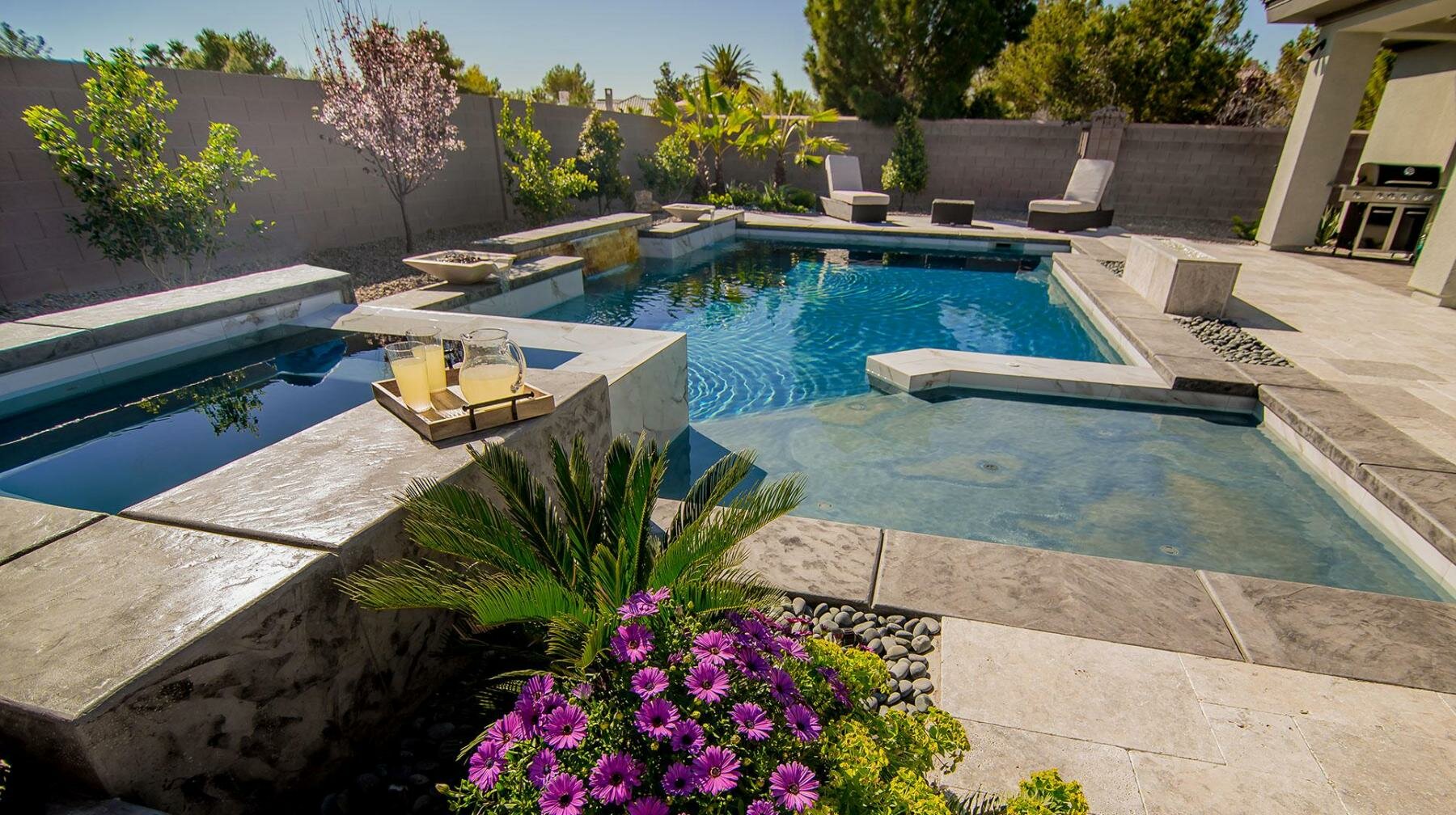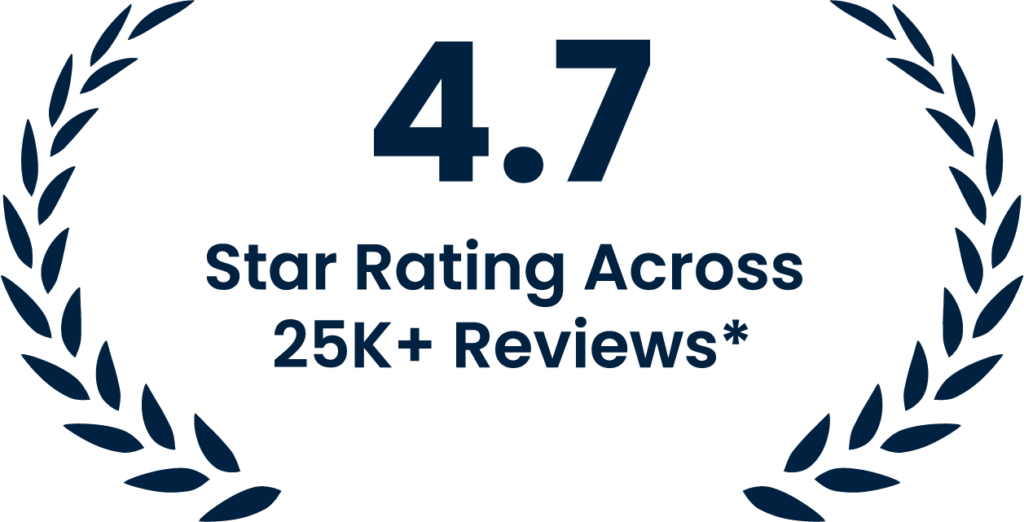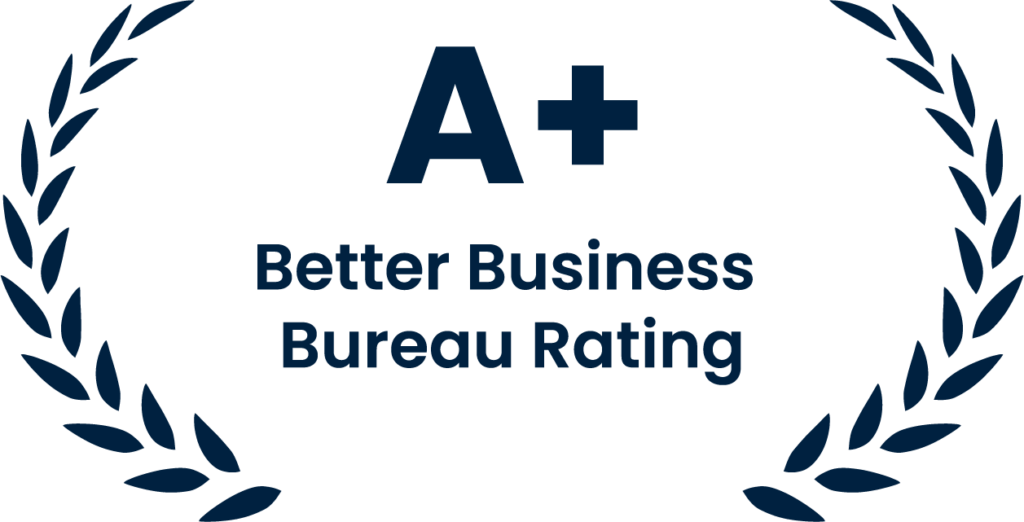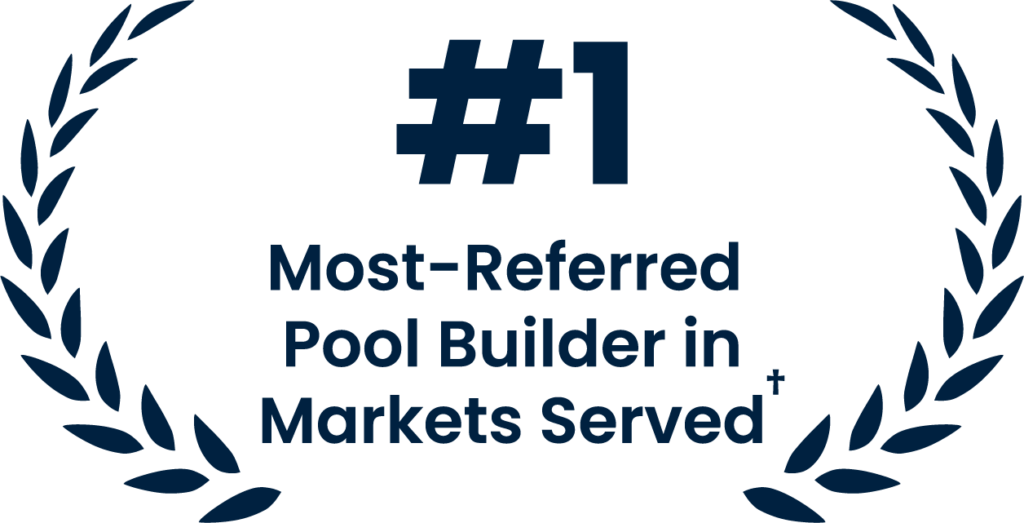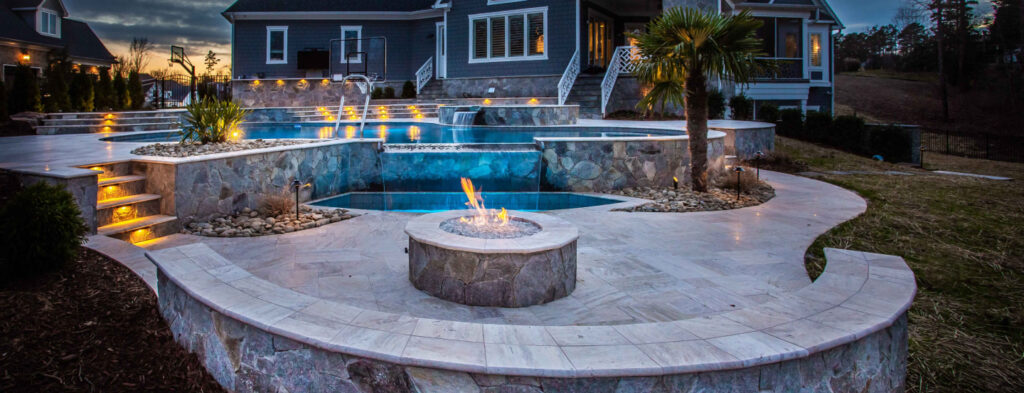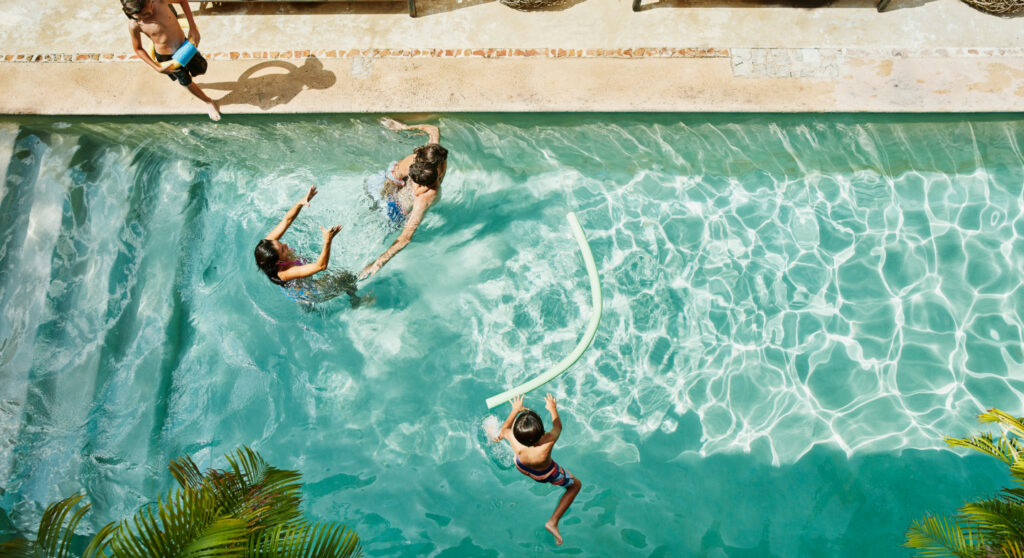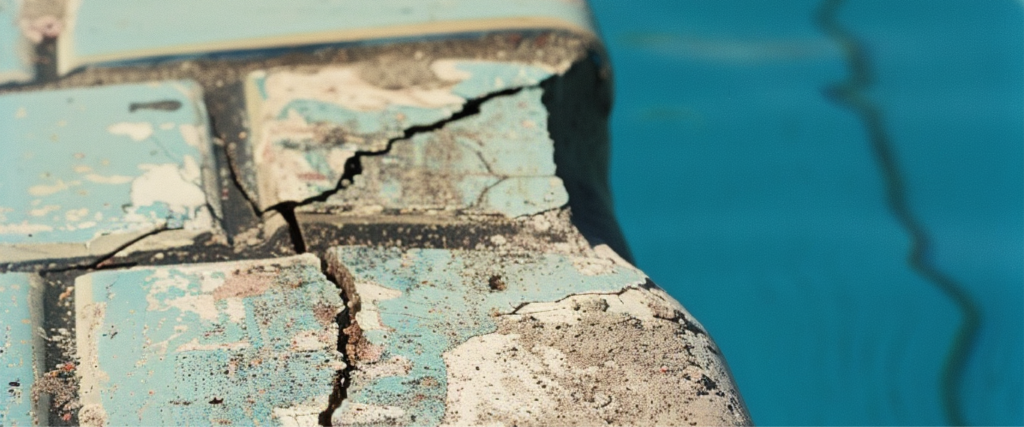Several factors contribute to the overall cost of installing and owning a pool:
1. Pool Material
Pools are typically made from your choice of concrete, fiberglass, or vinyl. Each material has its own pros and cons, which include cost considerations.
- Concrete (Gunite): Sculpted by hand, making concrete pools the most customizable of any material with your choice of shape, finish, and size. Concrete pools also have exceptional durability and can last 50-100 years with proper maintenance, though they can have a higher construction cost compared to other materials.
- Fiberglass: Pre-formed shells that require little maintenance, but lack customization options and can be expensive to repair if damaged.
- Vinyl: Made from a steel or polymer frame and a vinyl liner, these pools usually have the lowest initial cost of any material with some customization options. However, the vinyl liner is susceptible to tearing and needs to be replaced every 10 years which adds to long-term costs.
2. Size and Shape of the Pool
The bigger and deeper the pool, the more materials and labor are needed, which increases your total cost. Most residential pools fall between 10-20 feet wide, 20-40 feet long, and 5-8 feet deep. For freeform pools that feature curves or a unique shape, these designs can also increase the cost compared to a geometric pool.
3. Site Preparation
Before construction can begin, you’ll need to prepare the site and excavate a sufficient space for the pool. Excavation can be more expensive in Las Vegas due to the presence of caliche, a cement-like soil that’s common in the area. Additionally, if your property requires significant leveling, tree removal, or relocating pipes, expect higher prep costs.
4. Pool Add-ons and Features
Enhancements personalize your pool but also add to the bottom line. Popular features include:
- Custom lighting
- A jump board
- Waterfalls
- Fountains and laminar jets
- Heaters and chillers
- Water purifiers and chlorinators
Safety features like fencing, alarms, and covers are often required by local codes and should be factored into your budget too.
5. Utilities
Operating your pool in Las Vegas’s desert climate means increased usage of pumps, heaters, and filters. Your water and electric bills will rise, particularly during peak summer months. If you choose a saltwater system, you’ll have lower chlorine costs but will need periodic salt cell replacements. Utility costs also increase in relation to the size of your pool, as the larger the pool, the more water, electricity, and chemicals you’ll need.
6. Local Permits & Regulations
Clark County and the city of Las Vegas have specific permitting requirements and regulations for residential pools. Requirements include necessary safety features like fencing and a self-closing door, but there are also rules related to the installation of plumbing and electrical systems. Prior to building a pool in Las Vegas, you’ll want to check the local codes or consult with your builder to see how they’ll ensure compliance.
Anthony & Sylvan navigates these regulations on your behalf, securing permits and ensuring your project complies with all safety and zoning codes.
7. Taxes
Installing a pool can increase your home’s value 5-7% on average, and with it, your property taxes will also typically increase. For an estimate of how much building a pool will raise your property taxes, consult with your builder or a local tax professional.
8. Insurance
When you build a new pool, you’ll need to contact your homeowner’s insurance provider to update your policy. Your policy premiums will increase, though typically it’s only around $50 a year. By updating your homeowner’s insurance policy to reflect the new pool, it may help cover damage to the pool or liability expenses in case of a pool-related accident.
9. Maintenance
In addition to the initial construction cost, you’ll need to perform maintenance on a regular basis to keep your pool in good condition. Common pool maintenance includes tasks like balancing chemicals, cleaning, and vacuuming.
| Type of Maintenance |
Frequency |
Average Cost |
| Cleaning and chemical balancing |
Weekly |
$80-150 per month |
| Drain and filter cleaning |
Every 3-6 months |
$60-125 per session |
| Opening/closing the pool |
Biannually |
$150-$300 per event |
Additional Maintenance Considerations By Pool Type
- Concrete Pools: Plan for resurfacing every 8 to 20 years to maintain a smooth surface and repair damage caused by long-term exposure to water and pool chemicals.
- Fiberglass Pools: Occasional gel coat repairs may be necessary to fix surface scratches or restore color vibrancy.
- Vinyl Pools: Expect to replace the vinyl liner approximately every 10 years due to natural wear and tear.

